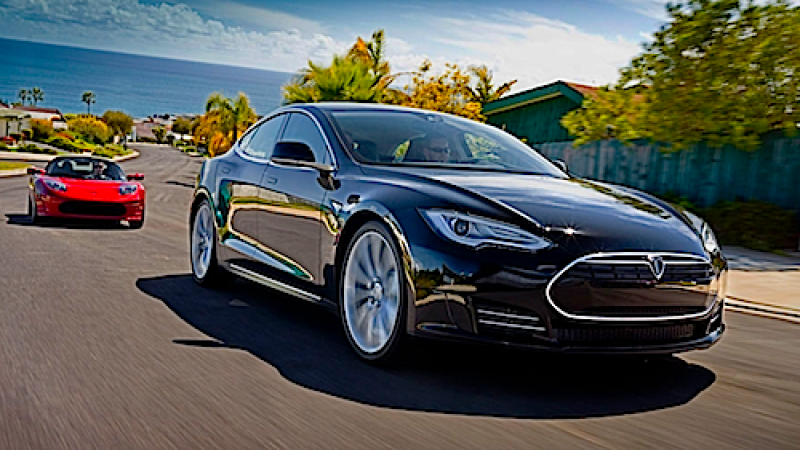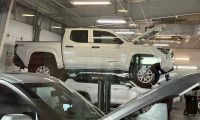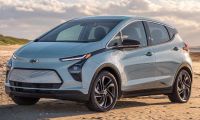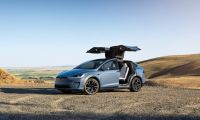When I see electric vehicle, EV haters it always amuses me. What’s the problem with more choice and why can’t those who can afford it now and make sense of it be able to buy electric cars? Better yet, with each new generation of electric cars, their range rise, prices somewhat drop and Tesla shows you can have a truly performance electric sedan for $50,000, something not too many other gasoline makers are doing these days.
Hybrid, Plug-In Hybrid Or Electric? OK, we’ve asked and answered this one before but it seems there’s still confusion. The general rule of thumb so far is city dwellers and light urbanites will find electric cars aren generally more economical to operate. Electricity versus gasoline per miles is respectively around 10 cents a mile compared to 35 on an average. But before deciding anything, you need to understand how you drive, where, when and what you truly need, versus want. Sure we all want a Ferrari and a Porsche but the truth of the fact is that almost any entry-level car will meet your basic needs.
40 Miles A Day. That’s it. No more. 80% of the US population drives 40 miles or less on their daily commute making virtually any car on the market today, and that includes bicycles a reliable transportation means. Of course, 40 miles in Montana in the middle of winter with a bicycle would be better in a CODA, Tesla or Chevy Volt.
How You Drive. Probably one of the point least taken into consideration is how you drive a car. Take a look around and you will see most people drive without paying much attention to fuel economy, traffic pattern and give little to no thought spacing their cars intelligently and coasting to stops. If you are a little more careful and understand all of the above, you will see your gasoline budget shrink somewhat, even more if you start driving a hybrid and definitely a lot, depending on how you drive a plug-in hybrid, PHEV. But if you read TorqueNews, chances are you like to step on it and raise your adrenaline level once in a while. A Prius might not necessarily cut it but an Audi TDI, a VW Jetta Hybrid, a Chevy Volt, and if you can stretch it a Tesla Model S would give you performance and better energy management.
MPGe Mumble-Jumble! Away with vague equivalent ratings of gasoline to electricity driving. It can’t be done realistically. Instead find out what your daily routine habit is, compile how many miles you drive a year then see how much you spent on gasoline last year and tabulate for a 10% increase yearly. Now a hybrid might start to make more sense. But what if you only drive longer distances a few times a year? Then you’ll find renting a car is cheaper, especially when taking insurance into consideration.
The Range Myth. Let’s face it, range anxiety is only in the mind of carmakers who don’t understand our needs and don’t have the best solutions for us. So The Tesla base Model S is about $50,000 for about 160 miles and the top of the line is $100,000. Now how many gasoline performance cars give you range and performances that match that of the S? You can go and figure that one out on your own but make sure to take into consideration operating costs, such as maintenance and insurance. I have no problem trading 100 miles less for $25,000 less. That’s a premium I can use on renting cars or eating healthy food.
While it takes a little time to figure out what you truly need when it comes to driving, you can find a lot more today than you could five years ago. The choice is wide, and if you have the money, you’ll find alternative energy cars that answer all of the above. In this season of merriments and holiday spirit, it might be nice to remember that at the very least we have choice, we can get loans and can drive affordable hybrids, buy plug-in hybrids while we watch the price of electric cars drop and their range increase.
Set Torque News as Preferred Source on Google











Comments
Great article Nicholas! I
Permalink
Great article Nicholas!
I would like to add one more consideration.
WE have all learned to save electricity by turning off power bars and eliminating 'electric vampires' those mini-volt suckers that just keep systems warm. So why accept a 'vampire' that keeps your EV rolling forward? An ancient FORD flaw and inability to keep planetary gears still doesn't need to be carried forward into EV technology. Stop a Tesla or a converted EV and it stays stopped! It could even be considered a safety item!
The built in "creep" feature
Permalink
In reply to Great article Nicholas! I by Tina Juarez (not verified)
The built in "creep" feature you mention has become a standard driver aide which makes for easy and safe maneuvering in tight places. I think for most it would be hard to loose this feature so why not adopt the Prius method where extra pressure on the brake pedal while stationary cuts the power and saves energy...problem solved!
I'm not I follow the built
Permalink
In reply to The built in "creep" feature by Anonymous (not verified)
I'm not I follow the built creep feature. Creep as in creeping to a place, or creep as in a creepy person? Thanks for clarifying.